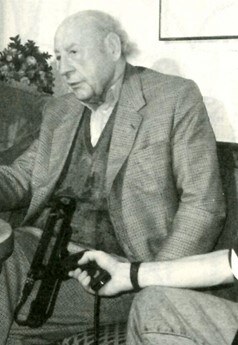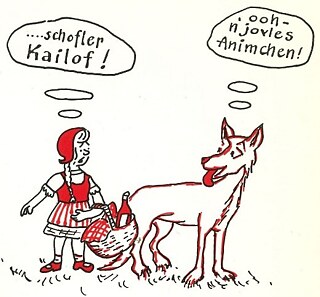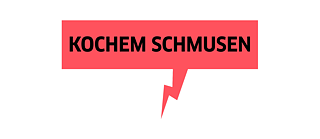In the early 1990s, budding and established linguists flocked to the corner pubs and slums of some cities. There they interviewed the last surviving speakers of the Rotwelsche dialects. Today, everything is well documented - to the delight of UNESCO.
Emmes, Haiwoog, Humpisch, Henese Fleck, Kochum, Lachoudisch, Lakerschmus, Laufdibbern, Lottegorisch, Masematte, Pleisle, Schlausmen – have you ever heard of them? Probably none of our readers have ever come across these strange terms. They sound dark and mysterious, accessible only to the initiated: the names of German secret languages, descendants of medieval and early modern Rotwelssch. Today, these so-called “Rotwelsche dialects” are no longer spoken in their original function of excluding third parties from understanding them; the old speakers are no longer alive.Last minute rescue
In the early 1990s, a group of linguists and students set out to find the last surviving speakers of the 70 or so Rotwelsche dialects spoken in Germany at the time, and to preserve their linguistic knowledge. Original sound from a corner pub in one of the old slums of Münster, Westphalia:And why didn’t you pass on your secret language?
Well, you don’t teach it to children anymore. You don’t want them to know that you used to be a little poorer than you are now. That’s for sure. (Speaker interview August 1990)

Speaker interview 1990 (Bernhard Götz, born 1912) | Siewert
Honoured and ready for the stage
And that’s where UNESCO comes in: in 2024, the Rotwelsche dialects were recognised as “intangible cultural heritage” and “carriers of cultural expression in the present”. And yes, today you can hear the old secret languages in dialects and on stage. They appear in translations of fairy tales and proverbs: Es war einmal ein kurantes anim, das böschte immer mittem roten Dohling durche Bendine … Eines Tages schmuste die Alsche von Rotdohlinchen: “Los, schemm mal zu Omma. Schuck ihr was zum Achilen und zum Pieren. Aber sei mucker und scherbel nicht vonne Strehle runter!” … Recognised? (Editor’s note: If not, take a look at this version of the fairy tale Little Red Riding Hood, for example).
Textbook Masematte I, 1990 | Siewert
From the secret code of the poorest to colloquial language
The socio-historical background of the Rotwelsche dialects – which are now more localised than the old Rotwelsche –was formed by the voluntary or involuntary settlement of formerly homeless travellers in the 18th century and their membership of the social underclass of the respective communities. In addition to the possibilities offered by the integration of words from the Rotwelsche dialect and foreign donor languages, the speakers of Rotwelsche dialects also used other methods of camouflage. These included the creation of hybrid forms (e.g. German-Romani müfe-bin “stench”) or the alteration of meanings, e.g. Western Yiddish meschores “servant” > rwd. maschores “boss” or Romani mátska “cat” > rwd. matschka “woman from the East”. Some of the words used in the "Rotwelschen" dialects managed to overcome the narrow boundaries of the secret language over time and became part of regional colloquialisms, thus ensuring their survival: for example, ausbaldowern “to scout”, schickern “to drink”, Ische, Schickse “girl, woman”.And if they hadn’t died ...
I owed the readers something, didn’t I? Here is the happy ending to the story of Little Red Riding Hood and the Wolf: Rotdohlinchen schemmte in das Backs, teilachte zur Poofe und fand, dass ihre Omma hamel meschugge ausse Klamottten reunte. Rotdohlinchen schmuste: “Was haste denn für große Röllekes?“ – “Damit ich dich jovler dibbern kann!” – “Was haste denn für eine schofel große Gosche?” – “Damit ich dich jovler verspachteln kann!” Und kaum hatte der Keilof das rakewehlt, da böschte er ausse Firche und verfrengelte auch den Koten mit den roten Obermann. The rescuer approaches with long strides: Er nahm seine Plotte inne Fehme und burkte dem Keilof die Wampe auf. Rotdohlinchen böschte tacko raus … Und wenn sie nicht mulo ist, dann schemmt sie noch heute mit den roten Obermann durch die Bendine. (Editor’s note: We have not translated the Rotwelsche dialect version of the fairy tale Little Red Riding Hood, but you can find an English version here.)Word! The Language Column
Our column “Word!” appears every two weeks. It is dedicated to language – as a cultural and social phenomenon. How does language develop, what attitude do authors have towards “their” language, how does language shape a society? – Changing columnists – people with a professional or other connection to language – follow their personal topics for six consecutive issues.
November 2024
